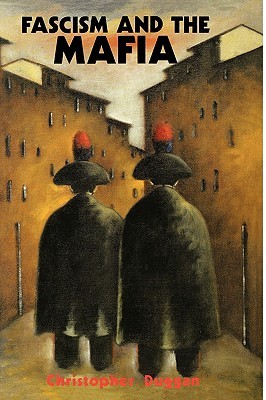
- Išsiųsime per 12–18 d.d.
- Autorius: Christopher Duggan
- Leidėjas: Yale University Press
- ISBN-10: 0300043724
- ISBN-13: 9780300043723
- Formatas: 16.3 x 24.2 x 3.2 cm, kieti viršeliai
- Kalba: Anglų
- Extra -15 % nuolaida šiai knygai su kodu: ENG15
Atsiliepimai
Aprašymas
The Sicilian mafia is a subject of endless fascination, but few serious books have been written about it. In this provocative work, Christopher Duggan argues that the idea of the mafia is a fiction, born of political calculation and genuine misunderstanding of the behaviour of Sicilians. The first part of the book looks at the development of the idea of the mafia from the 1860s, when the term first appeared, to the Second World War. Although all serious observers realised that there was no organised criminal society in Sicily, Duggan explains why the idea was perpetuated. When the island became part of unified Italy in 1860, hostility to the new state was claimed by officials to be criminally inspired, and they spoke for the first time of 'the Mafia'. The distinctive values of the Sicilians, such as their belief in private justice and unwillingness to cooperate with the police, reinforced the idea of a secret criminal society. From then on, many of Sicily's political and social problems were attributed to this mythical organisation. In the second part of the book, to illustrate the general observations made in the first, Duggan provides a detailed study of the repressive campaign conducted by the fascist government against the mafia in the 1920s. Making use of private papers, police files, and trial proceedings, he concludes that the mafia was primarily an idea exploited for political ends, and that its use only strengthened many Sicilians' deep mistrust of the state. This lively book is a penetrating account of the origins of the mafia myth and the first study of the impact of fascism on Sicily. It will be of great interest to historians of modern Italy, to anthropologists, and to criminologists, as well as to those who are actively engaged in the fight against organised crime. Christopher Duggan was a Fellow of All Souls College, Oxford, and Lecturer in Italian History and Director of the Centre for the Advanced Study of Italian Society at Reading University. He is co-author, with Denis Mack Smith and Moses Finley, of 'A History of Sicily' (1986).
EXTRA 15 % nuolaida su kodu: ENG15
Akcija baigiasi už 4d.00:32:04
Nuolaidos kodas galioja perkant nuo 5 €. Nuolaidos nesumuojamos.

- Autorius: Christopher Duggan
- Leidėjas: Yale University Press
- ISBN-10: 0300043724
- ISBN-13: 9780300043723
- Formatas: 16.3 x 24.2 x 3.2 cm, kieti viršeliai
- Kalba: Anglų
The Sicilian mafia is a subject of endless fascination, but few serious books have been written about it. In this provocative work, Christopher Duggan argues that the idea of the mafia is a fiction, born of political calculation and genuine misunderstanding of the behaviour of Sicilians. The first part of the book looks at the development of the idea of the mafia from the 1860s, when the term first appeared, to the Second World War. Although all serious observers realised that there was no organised criminal society in Sicily, Duggan explains why the idea was perpetuated. When the island became part of unified Italy in 1860, hostility to the new state was claimed by officials to be criminally inspired, and they spoke for the first time of 'the Mafia'. The distinctive values of the Sicilians, such as their belief in private justice and unwillingness to cooperate with the police, reinforced the idea of a secret criminal society. From then on, many of Sicily's political and social problems were attributed to this mythical organisation. In the second part of the book, to illustrate the general observations made in the first, Duggan provides a detailed study of the repressive campaign conducted by the fascist government against the mafia in the 1920s. Making use of private papers, police files, and trial proceedings, he concludes that the mafia was primarily an idea exploited for political ends, and that its use only strengthened many Sicilians' deep mistrust of the state. This lively book is a penetrating account of the origins of the mafia myth and the first study of the impact of fascism on Sicily. It will be of great interest to historians of modern Italy, to anthropologists, and to criminologists, as well as to those who are actively engaged in the fight against organised crime. Christopher Duggan was a Fellow of All Souls College, Oxford, and Lecturer in Italian History and Director of the Centre for the Advanced Study of Italian Society at Reading University. He is co-author, with Denis Mack Smith and Moses Finley, of 'A History of Sicily' (1986).




Atsiliepimai